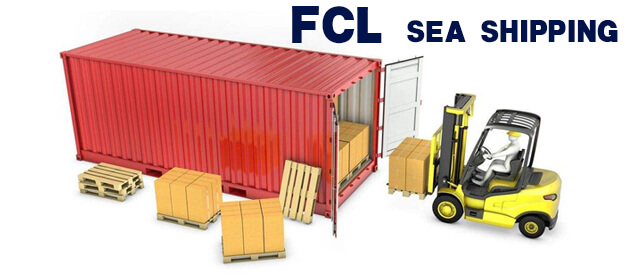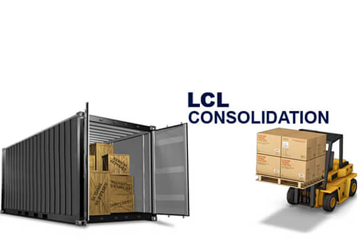- By Della tj
- November 7, 2025
- Shipping, Special Price
In today’s competitive trade environment, cheap FCL shipping from Shenzhen to Germany offers businesses a reliable and cost-efficient way to move large cargo across continents. Whether you’re shipping electronics, machinery, or bulk goods, full container load (FCL) shipping ensures security, flexibility, and long-term value for importers.
Why Choose FCL Shipping from Shenzhen to Germany?
FCL (Full Container Load) shipping means your goods occupy an entire container exclusively, giving you full control over packing, sealing, and scheduling.
Top benefits include:
- Lower freight cost per unit for bulk cargo
- Reduced risk of cargo damage or contamination
- Faster loading and customs clearance
- Predictable transit times with direct vessel services
Moreover, Germany’s major ports—Hamburg, Bremerhaven, and Wilhelmshaven—receive regular shipments from Shenzhen’s Yantian, Shekou, and Chiwan terminals, ensuring smooth logistics connectivity for European importers.
How Long Does FCL Shipping Take from Shenzhen to Germany?
Transit time depends on the route, shipping line, and customs processing at both ends. The average FCL delivery schedule is outlined below:
| Route | Destination Port | Transit Time (Days) | Type of Service |
|---|---|---|---|
| Shenzhen → Hamburg | 28–33 | Direct | Most common route |
| Shenzhen → Bremerhaven | 29–35 | Direct | Ideal for central Germany |
| Shenzhen → Wilhelmshaven | 30–36 | Transshipment | Slightly longer |
| Shenzhen → Munich (via rail from Hamburg) | 33–38 | Sea + Rail | For inland Germany |
Additionally, FCL services now leverage digital documentation and EU customs pre-clearance, reducing administrative delays.
How Much Does Cheap FCL Shipping from Shenzhen to Germany Cost?
FCL shipping rates fluctuate based on fuel prices, seasonality, and cargo volume. Here’s a cost overview for 2025:
| Container Type | Volume (CBM) | Average Cost (USD) | Transit Time (Days) |
|---|---|---|---|
| 20GP | 28 CBM | $1,250–$1,600 | 28–33 |
| 40GP | 58 CBM | $2,050–$2,400 | 28–35 |
| 40HQ | 68 CBM | $2,150–$2,700 | 28–35 |
Extra costs may include:
- Terminal Handling Charges (THC)
- Bunker Adjustment Factor (BAF)
- Bill of Lading fees
- Insurance premiums (optional)
Despite rate fluctuations, FCL remains the cheapest per-cubic-meter option for medium to large shipments.
What Documents Are Required for FCL Shipping to Germany?
Accurate documentation is key to smooth customs clearance and avoiding demurrage fees. Below is a checklist of required paperwork:
| Document | Purpose |
|---|---|
| Bill of Lading (B/L) | Confirms shipment ownership and details |
| Commercial Invoice | Declares product value and description |
| Packing List | Lists goods, weight, and dimensions |
| Certificate of Origin | Confirms manufacturing country |
| Importer’s EORI Number | Required for EU importers |
| CE Certification | Needed for electronic or mechanical items |
| Insurance Certificate | Protects goods against loss or damage |
Tip: Ensure all HS codes are accurate to prevent customs delays in Hamburg or Bremerhaven.
Real Case Studies: Cheap FCL Shipping from Shenzhen to Germany
Case 1: Furniture to Hamburg
Route: Shenzhen → Hamburg (40HQ FCL)
Cargo: 68 CBM furniture sets
Cost: $2,280
Transit Time: 30 days
Result: Shipment cleared customs in 2 days and delivered to a Berlin retailer without additional storage charges.
Case 2: Machinery to Bremerhaven
Route: Shenzhen → Bremerhaven (20GP FCL)
Cargo: 22 tons of industrial equipment
Cost: $1,480
Transit Time: 32 days
Result: Used CIF terms; no damage; delivery completed 3 days earlier than scheduled.
Comparison: FCL vs LCL vs Air vs Rail Freight
| Mode | Transit Time (Days) | Cost | Reliability | Best For | Advantages | Disadvantages |
|---|---|---|---|---|---|---|
| FCL (Sea) | 28–35 | $$ | ★★★★★ | Bulk shipments | Secure, cost-efficient | Requires full container |
| LCL (Sea) | 33–40 | $ | ★★★☆☆ | Small loads | Flexible | Slower and shared space |
| Rail Freight | 18–25 | $$$ | ★★★★☆ | Medium loads | Faster than sea | Limited routes |
| Air Freight | 5–8 | $$$$ | ★★★★★ | Urgent cargo | Fastest | Most expensive |
In short, cheap FCL shipping from Shenzhen to Germany delivers the best cost-to-volume ratio for consistent import operations.
Need a reliable logistics partner? Share your shipment details and we’ll provide a tailored quotation quickly and accurately.
What Factors Affect FCL Shipping Cost and Delivery Time?
Multiple variables influence freight pricing and timing:
- Seasonal trends: Prices rise before Chinese holidays or European peak demand.
- Fuel prices: Affect bunker adjustment surcharges.
- Port congestion: Hamburg and Yantian may face occasional delays.
- Incoterms: Terms like FOB, CIF, or DDP determine who pays duties.
- Weather or rerouting: Storms and strikes can extend sailing time.
However, experienced freight forwarders like Top China Freight plan routes strategically to minimize these disruptions.
How to Get the Best Deals on Cheap FCL Shipping
To secure competitive FCL shipping rates, follow these proven strategies:
- Book early: Reserve space 3–4 weeks ahead of schedule.
- Choose off-peak seasons: Avoid Chinese New Year and Christmas.
- Use long-term contracts: Lock in rates with shipping lines.
- Consolidate loads: Use multi-container discounts.
- Partner with experts: Work with trusted forwarders to negotiate rates.
Additionally, Top China Freight provides flexible solutions for exporters seeking affordable FCL shipping to Germany with fast customs clearance and door delivery.
Conclusion
In conclusion, cheap FCL shipping from Shenzhen to Germany is the most efficient and economical method for large-scale import operations. It offers unbeatable cost-per-unit savings, security, and consistent transit schedules.
By partnering with Top China Freight, importers can enjoy affordable pricing, professional customs support, and reliable door-to-door delivery service.
Without a doubt, FCL shipping remains the best option for businesses connecting Shenzhen’s manufacturing power with Germany’s growing industrial demand in 2025 and beyond.
Request a Quote
Need a tailored solution for your shipping from China?Let TJ China Freight Forwarder assist you with reliable, cost-effective service.
FAQ:
Q1.How long does cheap FCL shipping from Shenzhen to Germany take?
Typically 28–35 days, depending on carrier route, customs processing, and the destination port in Germany.
Q2.What container sizes are available for FCL shipping?
Common options include 20GP (28 CBM), 40GP (58 CBM), and 40HQ (68 CBM) containers for all cargo types.
Q3.Can I track my FCL container during transit?
Yes, real-time tracking systems allow you to monitor container movement from Shenzhen to Hamburg or Bremerhaven.
Q4.Are customs duties included in FCL quotes?
Usually not. Unless shipped under DDP terms, duties and VAT are handled by the consignee in Germany.
Q5.What goods are best suited for FCL shipping?
FCL shipping is ideal for furniture, machinery, electronics, textiles, and building materials exceeding 20 CBM.





